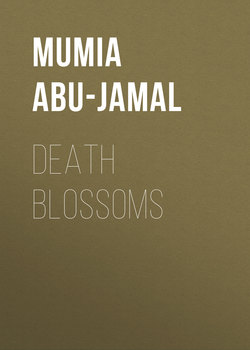Читать книгу Death Blossoms - Mumia Abu-Jamal - Страница 12
На сайте Литреса книга снята с продажи.
ОглавлениеBOOKS
AND THE STATE
The writer who is endorsed by the state is the writer who says what everyone wants to hear: the allowable things. It is noteworthy that even at this time in world history, those who write satire, social commentary, or works of opinion can be damned, threatened, and marked for death because of their words. Take Salman Rushdie. How many people have actually read his works? I have read The Satanic Verses, also Haroun and the Sea of Stories. I cannot speak for a Muslim, of course, yet I found him fascinating, funny, and an extremely good writer. I can understand why the state felt threatened by his work. What I don’t understand is why they would think of doing something that will only immortalize it.
If there’s one thing we’ve learned in two thousand years, it’s that you cannot kill a book. One of the greatest science-fiction films I have ever seen, Fahrenheit 451 (that’s the point at which paper combusts spontaneously), which is based on a Ray Bradbury novel, portrays a futuristic society in which books are banned and people cannot hold unorthodox ideas. In this society there are subversives—people who read books. The subversives keep their books hidden in attics, in basements, and behind false walls. And this old lady in the film tells a young girl that she likes books and has some hidden in her attic. Somehow the word gets out, and when it does, the alarms start ringing and they call the fire department. The fire brigade rushes to the house, axes the doors, and starts a fire: they burn the house to the ground. Finally all the subversives or rebels flee the country to a place where people become books. In a sense, the film tries to show how far the state will go to ban books, or anything it perceives to be dangerous, for that matter. But it also shows how useless all those measures are.
You cannot kill a book.
